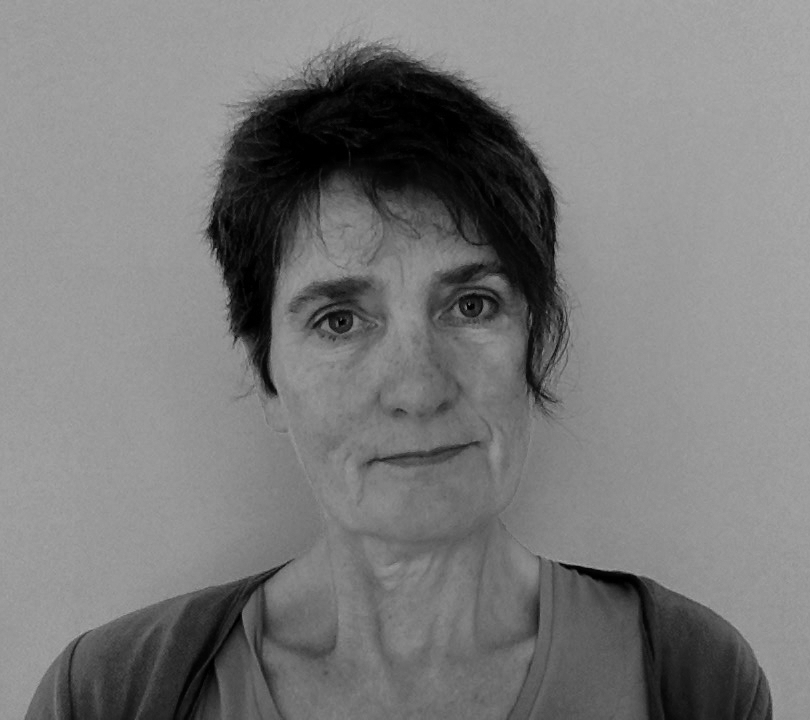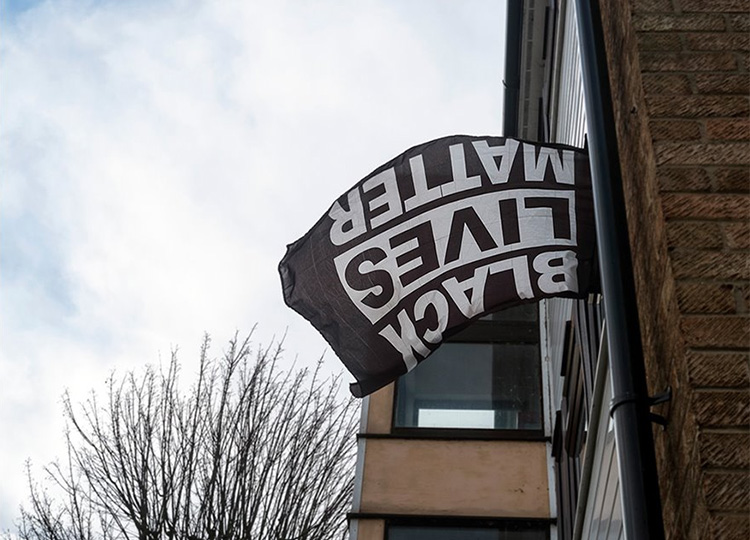Autograph’s platform for collaborative learning and exchange, PILOT, was established last year by Alberto Duman and Ali Eisa. This autumn, the course will run again for a second year. Below, art educator Jane Trowell shares her thoughts on what role such a programme – which places the notion of care at its core, and which was established by two men – can play in arts education, a field of work overwhelmingly occupied by white women.
It’s low tide. Jo and I are walking along the coastal path on the remote Isle of Grain, Kent, England. Glistening mudflats stretch out for nearly a mile. We are seeking a causeway that is only revealed as the tide recedes, linking us to our destination. Grain Tower was built in the 1850s reflecting the British government’s fear of invasion by the French navy. It was garrisoned with hundreds of men, majority Anglo-Saxon, over many years. Now it is a muddle of architecture: lumpen extensions were added in 1914-18 and in 1939-45. Abandoned since the 1950s, it is much loved by all kinds of explorers.
We wander around the Tower and I spot something above a makeshift ladder: the tops of some bright pink graffiti. Wary of falling, I walk backwards across the rubble to get more of a view. My eyebrows rise and I say, “Hey Jo, we have to go up there.” I decide to trust the makeshift ladder and ascend.
I experience a wave of joy. Here of all places. The cheek, yet the common sense embodied in the calm, regular letters.
Fuck Toxic Masculinity feels to me like an act of reclamation, of reparation, sited in a place originally dedicated to asserting British military might. A military might based on assumptions of white British imperialist heterosexual supremacy. Based on firm notions of what constitutes normal ‘masculine’ behaviour, regardless of how much love and care, homoerotic or platonic, thrives between everyday ‘male’ soldiers in the military and in the wider world.
My first thought was: someone who identifies as female, cis or trans, wrote this.
My second thought was: someone identifying as a feminist wrote this.
My third thought was: someone identifying as non-binary; lesbian, gay or queer wrote this.
My fourth thought was: maybe a cis or trans heterosexual male wrote this. WTFN?
My fifth thought was that it was written by a ‘Shy Radical’ of whatever identities, someone resisting Extrovert Supremacism of the white patriarchal kind …²
My sixth thought was that an artist wrote it.
Perhaps all, perhaps none are right. Perhaps it doesn’t matter, or does it?
From the outset I’ve been struck that PILOT was set up by two cis men. Collaboration in art shouldn’t be surprising, but – in the context of the UK – it is still fragile in a white-dominated art world where the solo artist is fêted and competition is rife. You still can’t get assessed as a collaboration in most art schools.
The vast majority of people in art education, art teaching and socially engaged arts remain white cis women. My research shows that the ‘saviour complex’ in many white women, particularly educated heterosexual cis women (like me), remains a grave issue for social justice and equity. ‘Care’ and doing good still gets ascribed to a lineage that aided (and still aids) the delivery of white supremacy regardless of claims to equity.
I don’t want to play down the role of white heteropatriarchy in pushing racialised capitalism.
But the disproportionate domination of ‘caring’ roles in arts education and arts spaces by white women is also a structural oppression, a race-class-gender monopolising of resources and opportunities, a reflection of ‘who’ is allowed to imagine themselves as artist, carer, educator, and as having those skills. And ‘who’ is not.
Then I wondered about the intergenerationality and intercultural experience inherent in this collaboration for PILOT. What space is being opened up here? What is being ungarrisoned? What dismantling and re-mantling is being imagined?
The practices of cis men in loving, ‘caring’ work, across ages and backgrounds, away from (although not ignoring) what divides people… These are for me, some of the ongoing ingredients that make PILOT a fertile and dynamic space for equity work. A space where different lineages of cherishing this world, detoxifying masculinities, are proposed. Lineages with roots beyond this Northern European island, lineages where hands not meant to touch can - with consent - hold the other, acknowledging nuance, allowing complexity, deeply witnessing. And in the space made through these lineages, arises a communal space for listening, for equitable futures, for restoration, re-conception, co-creation and, yes, mutual collective embrace.
________
¹ Jo is reclaiming her lost heritage through developing a decolonial herbal medicine practice
² Hamja Ahsan (2017) Shy Radicals, The Anti-Systemic Politics of the Militant Introvert, London: Bookworks

is an arts educator, researcher and curator. She works with Voices that Shake!, a youth-led creative programme against social injustice. Previously for Platform, she co-designed an arts-activist course for adults The Body Politic.
She is doing doctoral research into Whiteness, Racism and Coloniality in Art Education, based on conversations with peers of colour about their experience of whiteness in art education in the UK, with a focus on the whiteness of cis women.
Jane’s text: Closer to the Skin: Whiteness and coloniality in ‘white’ art educators, is published in Debates in Art and Design Education, editors Nicholas Addison and Lesley Burgess, Routledge (2021). Email Jane.Trowell@nottingham.ac.uk for a pre-publication proof copy.

Autograph's online course will be running for a second year, offering exchange, mentoring and development for artists in times of uncertainty. Apply to join us by 31 August 2021.
Find Out MoreCan you spare a few moments? Autograph is carrying out a survey to better understand who our digital audiences are. The survey should take no longer than five minutes to complete. Anything you tell us will be kept confidential, is anonymous and will only be used for research purposes.
The information you provide will be held by Autograph and The Audience Agency, who are running the survey on our behalf. In compliance with GDPR, your data will be stored securely and will only be used for the purposes it was given.
You can take the survey here. Thank you!

.png)
Images: 1-3) courtesy of Jane Trowell.
Other images on page: 4) Alberto Duman, Tottenham, London, 2021. 5) Anna McIntyre, Digital Collage Featuring Portraits by Chris Miller [detail], 2021. 6) Done Begging artwork by Clara Lorenzo. 7) Artwork by Clara Lorenzo.
Autograph is a space to see things differently. Since 1988, we have championed photography that explores issues of race, identity, representation, human rights and social justice, sharing how photographs reflect lived experiences and shape our understanding of ourselves and others.